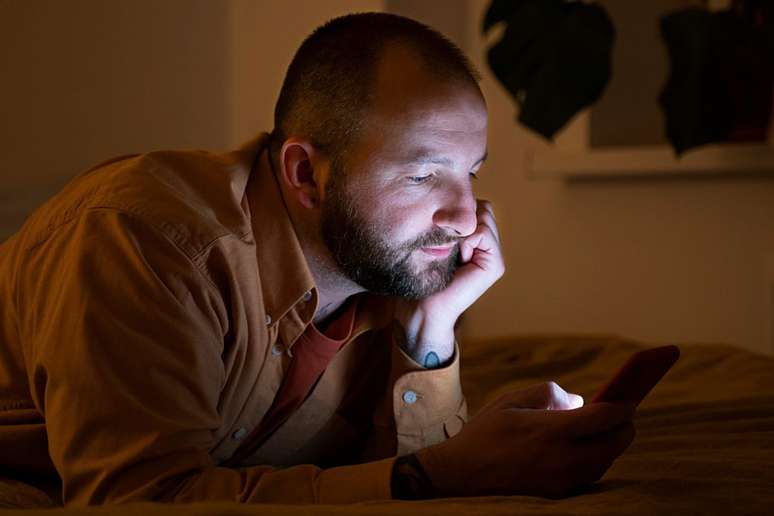Learn how prolonged exposure to blue light from cell phones in the dark affects eye health
Summary
When we use our cell phones in the dark, our eyes are subjected to an excessive amount of blue light. This not only causes immediate visual discomfort such as dry, irritated eyes, but can also have long-term harmful effects.
The digital age has brought with it countless advances and benefits, but also new challenges for health, especially eye health. One of these challenges is the growing habit of using cell phones in the dark, a practice that many adopt without being aware of the potential risks to their eyesight.
Cell phones emit blue light, a type of visible light that has more energy and therefore can be more harmful to the eyes than other types of light. Although blue light is also naturally emitted by the sun, direct and prolonged exposure to blue light from device screens can lead to long-term vision problems.
Effects of blue light in the dark
When we use our cell phones in the dark, our eyes are subjected to an excessive amount of blue light. This not only causes immediate visual discomfort such as dry, irritated eyes, but can also have long-term harmful effects:
• Digital eye strain: Prolonged exposure to blue light, especially in dark environments, increases eye strain when focusing, resulting in digital eye strain. Symptoms include dryness, irritation, difficulty concentrating and headaches.
• Sleep disorders: Blue light affects the production of melatonin, the sleep hormone, interfering with sleep rhythms. Using your cell phone in the dark before going to bed can make it difficult to fall asleep and reduce the quality of your sleep.
• Potential retinal damage: Studies suggest that excessive exposure to blue light can damage retinal cells, increasing the risk of age-related macular degeneration, a leading cause of vision loss in older adults.
• Risk of disease: Excessive exposure to blue light can accelerate the clouding of the lens, which can lead to diseases such as cataracts.
How to protect your eyesight
Given the potential risks, it is essential to take measures to protect your vision:
• Night mode: Turn on night mode on your device. This setting reduces the emission of blue light, replacing it with a warmer, less harmful light.
• Moderate use: Try to limit cell phone use before bed. Establish an “off time” for electronic devices, preferably an hour before bed.
• Adequate lighting: Avoid using electronic devices in the dark. Maintain soft, indirect lighting in the room, which can help reduce contrast and eye strain.
Essential care for eye health
In addition to these specific measures to minimize the effects of blue light, maintaining a healthy lifestyle is essential for eye health. A diet rich in vitamins and antioxidants, especially those found in fruits and vegetables, can support eye health and reduce the risk of eye disease.
Finally, queries Regular appointments with an eye doctor are crucial. These visits not only help identify and treat vision problems in their early stages, but also offer the opportunity to receive personalized advice from experts on how to protect your vision in the face of the challenges posed by the digital age.
Source: Terra
Ben Stock is a lifestyle journalist and author at Gossipify. He writes about topics such as health, wellness, travel, food and home decor. He provides practical advice and inspiration to improve well-being, keeps readers up to date with latest lifestyle news and trends, known for his engaging writing style, in-depth analysis and unique perspectives.








